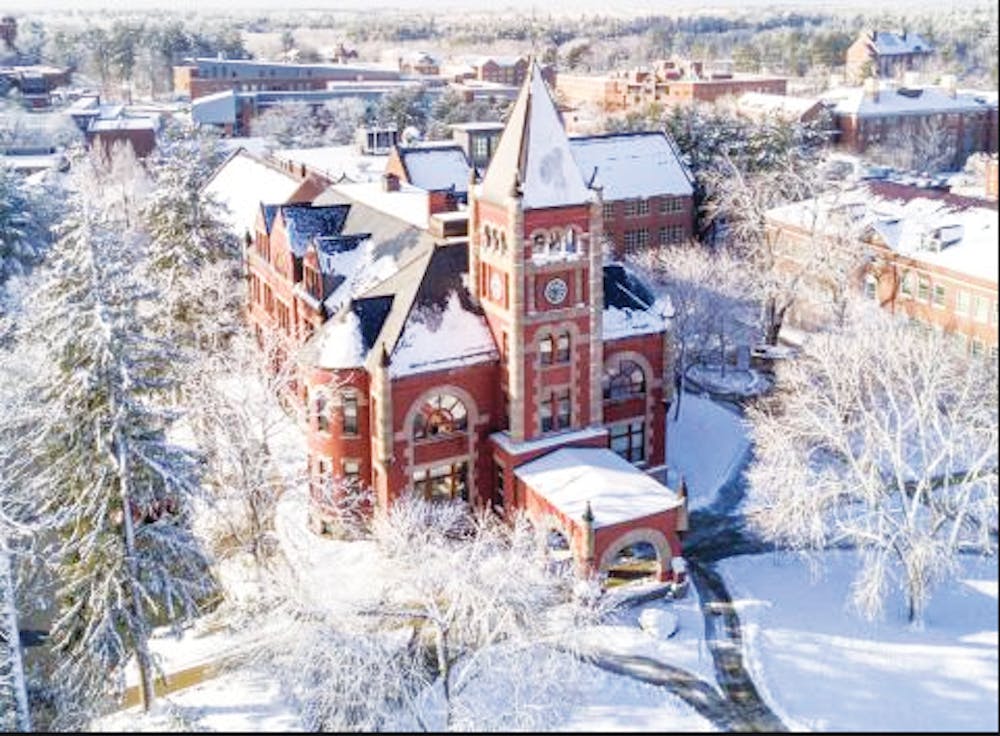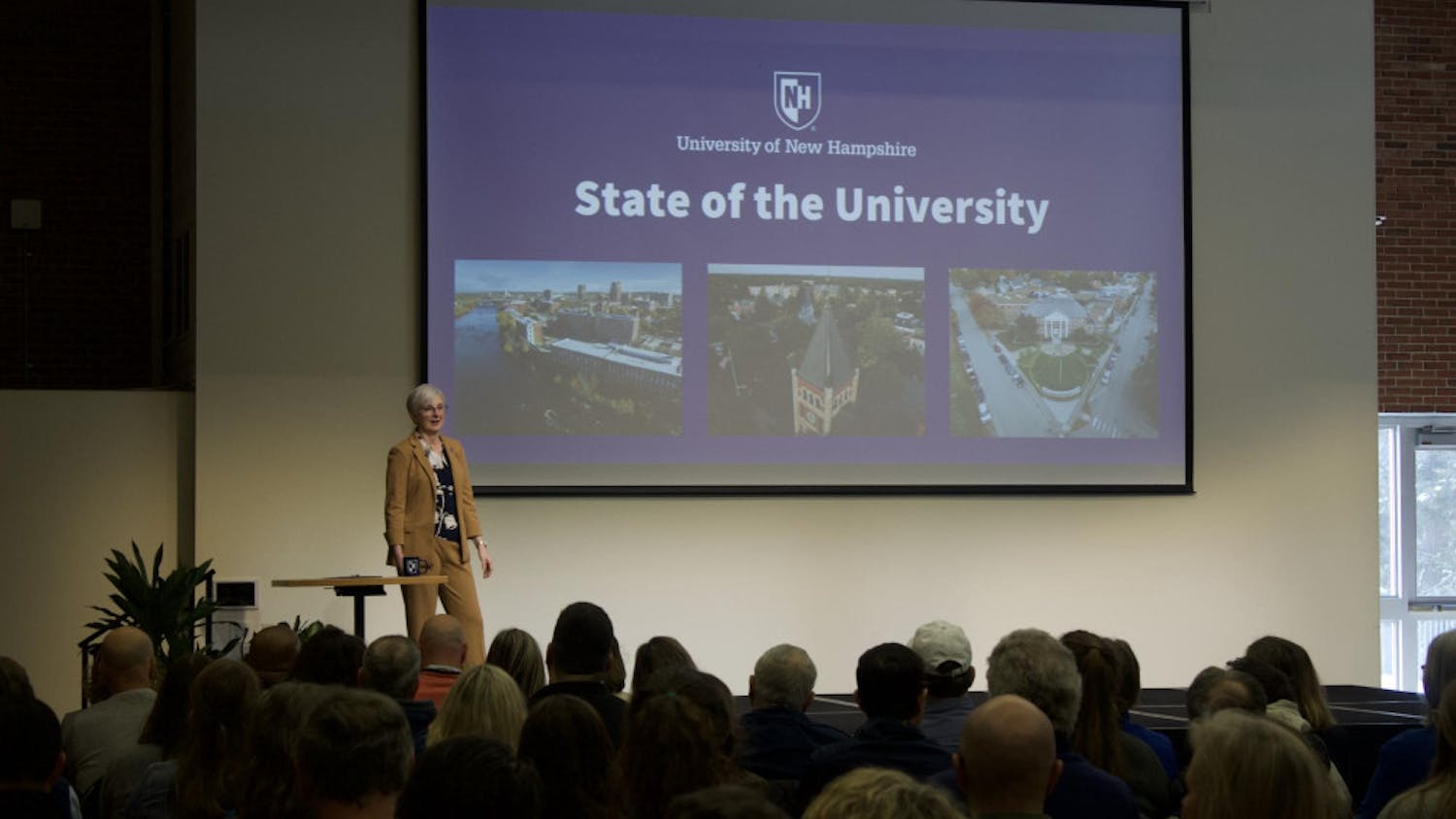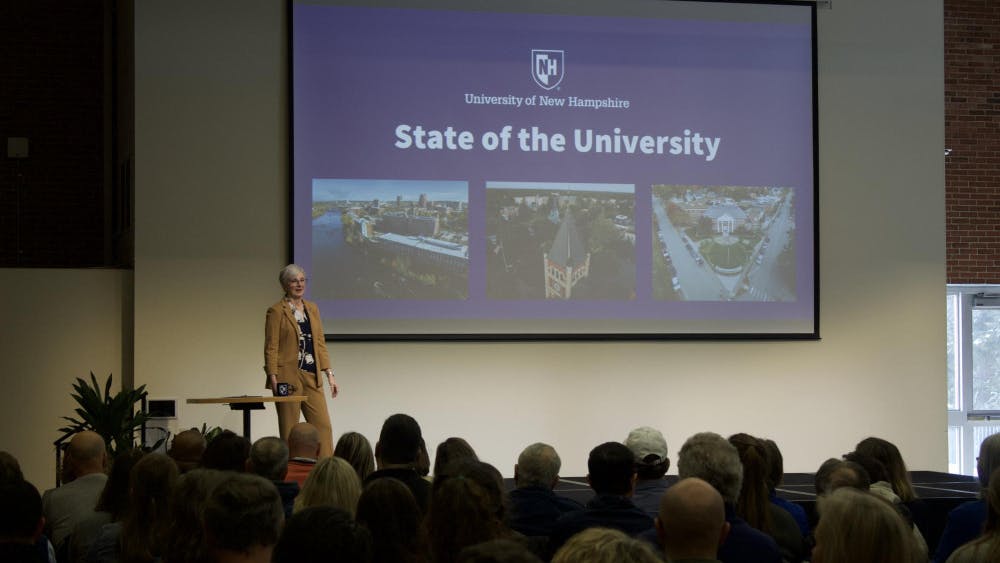As the University of New Hampshire begins their return to campus, students are being asked to follow all guidelines outlined by the university. Over the past week, UNH students have been sent an overwhelming number of emails regarding the testing procedure and rules for a safe spring semester which begins, Feb. 1. Below, the emails and guidelines provided by UNH are broken down as a comprehensive return to campus guide.
HOUSING:
For students living in on-campus housing, move-in is taking place over the course of four days, Jan. 27 through Jan. 30. The first day of school for students is Feb. 1. On-campus housing restrictions remain the same as were stated during the fall semester. Students will not be allowed to have any non-university guests or family members enter the residential halls. As stated at the beginning of the year there is a limit to the number of students allowed in dorm lounges and common spaces at a time and the dorm kitchens have been closed for the year. All rooms will remain at single or double occupancy regardless of the size the space may offer.
The housing teams has been working closely with the Dean of Students' office and the COVID-19 testing compliance team throughout winter break to make sure expectations are as clear as possible for students and so that the entire transition is smooth.
“Housing and residential life have been carefully planning fun events and programs that align with our safety practices,” said Victoria Perkins, the interim director of housing. “We want very much for students to enjoy their time living on campus, while feeling very comfortable knowing that we are making their safety-first priority. Housing and residential life have also been a part of the planning to ensure that the Wildcat Pass is more comprehensive, more user-friendly, and that the policies around testing compliance are strict but manageable for every student.”
TESTING PROTOCOLS:
Like last semester, students must have a valid Wildcat Pass to be anywhere on campus. The testing guidelines outlined by the university are the necessary steps for a student to have a valid Wildcat Pass come Feb. 1. In the last email sent out by Kenneth Holmes, the Senior Vice Provost of Student Life and Kate Ziemer, The Senior Vice Provost of Academic Affairs, the two provided a quick checklist for students. The list of reminders included:
Signing the Wildcat Pledge, which is a required step for students. The Wildcat Pledge states, “This confirms your commitment to participate in regular COVID-19 testing and follow all federal, state and university public health protocols around physical distancing, face coverings and gatherings. If a student does not sign the pledge, they will not have a valid Wildcat Pass and will not be permitted on any of our campuses. All employees are encouraged to sign the pledge to show support for our students and the university’s #UNHTogether campaign.” Students are required to answer one yes/no question that asked, “Do you agree to uphold the Wildcat Community Pledge and follow all guidelines? Students: This includes Student Rights, Rules, and Responsibilities?” This is the first mandated step into achieving a valid Wildcat Pass.
As for pre-arrival and arrival testing, there are different rules for students who do not live within a 90-mile radius of the university. For students who live outside the 90-mile radius, they were required to have a Quest Diagnostic self-testing kit sent to their permanent address. If the student’s result came back negative, they were asked to prove this and then select an arrival date for testing and test pick-up. Students who live in a 90-mile radius of the university were able to schedule an appointment at the Whittemore Center between Jan. 19-24, 8 a.m. - 5 p.m. These students picked up a self-testing kit and were asked to complete it and drop it off at any UNH testing drop-off location. Students could also upload proof of a negative test result; however, the university made it clear that this option was at the expense of the student. Those who continued to test throughout winter break and J-term were asked to keep testing and were not required to set-up a pre-arrival test. All students were then asked to pick a date and time for an arrival test and to pick-up their testing kits for the spring semester.
Everyone is required to update their profile for their Wildcat Pass and sign the quarantine attestation.
Students then confirm their regular testing schedule with the university based off their college. If the two days per week that their college is required to submit tests does not work for this student, they may file a petition to change dates with a valid reason.
The testing schedule is as follows:
College of Health and Human Services: Monday and Thursday mornings
College of Life Sciences and Agriculture/Thompson School: Monday and Thursday afternoons
College of Engineering and Physical Sciences: Tuesday and Friday mornings
Paul College of Business and Economics: Tuesday and Friday afternoons
College of Liberal Arts: Wednesday and Saturday mornings
Carsey, NRESS, Graduate Interdisciplinary Programs, Continuing Education or no college designation: Monday and Thursday afternoons
Finally, everyone must make sure they have a valid Wildcat Pass. If your pass is invalid, the website will tell you what needs to be fixed or completed in order for your pass to be validated.
On Jan. 20, the university went from an orange mode of operation back to yellow. The yellow mode of operation is known as “restricted” and means that cases are low on and off campus, and that the campus is in full operation with a student focus. All restrictions put in place by UNH are in the best interest of students, faculty, and staff so that the university can remain open for in-person/hybrid learning for the spring of 2021.
Photo courtesy of the University of New Hampshire












